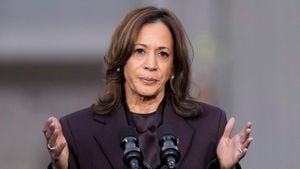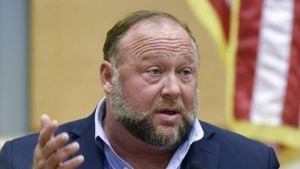Recent executive changes within major corporations have sparked significant interest among investors and consumers alike. Companies like Starbucks and Boeing are making key leadership adjustments, highlighting shifts not only within their internal structures but also their broader strategies moving forward.
Starbucks has recently appointed Brian Niccol as its new CEO and Chair, seeking to revitalize the coffee chain's performance. Transitioning from Chipotle Mexican Grill, Niccol's compensation package reflects the high expectations the company has for his leadership — worth up to $116.8 million based on company performance.
Niccol's annual base salary is set at $1.6 million, but that's accompanied by potential cash bonuses of up to $7.2 million. For leaving Chipotle, he will also get $75 million worth of equity, encouraging him to align closely with Starbucks' future earnings and market designs.
Starbucks’ rationale for this financial commitment is simple: they believe Niccol brings the experience necessary to turn things around at the coffee giant. Company representatives assert Niccol has been one of the most effective leaders, evidenced by his tenure at Chipotle, where he oversaw remarkable stock growth.
For comparison, his predecessor at Starbucks, Laxman Narasimhan, had a significantly lower compensation package, reflecting the competitive nature of the industry. This influx of resources indicates Starbucks’ readiness to spur innovation and tackle challenges head-on.
Meanwhile, at Boeing, new CEO Robert “Kelly” Ortberg is taking steps to restore confidence after the turmoil caused by production issues. This change is critical for Boeing, as the company struggles to meet delivery schedules, impacting major airline clients like United and American Airlines.
Scott Kirby, CEO of United Airlines, expressed optimistic sentiments following his recent meeting with Ortberg. Kirby stated he left the discussion with “renewed confidence” about Boeing’s recovery path and future production capabilities.
United currently holds 484 unfilled aircraft orders with Boeing, highlighting the importance of their partnership for both companies to recover. The turnaround under Ortberg is anticipated to alleviate frustrations stemming from previous delays experienced by major airlines.
Ortberg, who previously worked with Rockwell Collins, has over 30 years of industry experience, making his appointment a well-regarded move. His hands-on experience and emphasis on engineering excellence suggest he understands the intricacies needed to navigate Boeing through its current challenges.
Kirby mentioned Ortberg's commitment to cultural changes within Boeing, stressing the importance of being close to employees to facilitate improvements. This approach contrasts sharply with perceptions of previous Boeing leadership and suggests a potential shift toward transparency and responsiveness.
Both Niccol at Starbucks and Ortberg at Boeing represent strategic choices made by their respective boards during pivotal moments for their companies. Their effectiveness will soon be measured by market reactions and operational improvements.
This new leadership also sheds light on broader trends within corporate America, where companies are increasingly willing to invest heavily to attract top talent. The stakes are high: as consumer preferences evolve, companies must adapt or risk losing market share.
The transition at Starbucks is accompanied by hopes of enhancing customer experiences and driving innovation, particularly within their struggling China sector. Similarly, Boeing’s adjustments reflect urgency to restore operational integrity and meet customer demands.
Starbucks has faced slumping sales and mixed customer experiences, particularly after the challenges endured during the pandemic. Investors will be watching closely how Niccol’s leadership will transform these aspects, pushing for growth and revitalization.
On the other hand, Boeing's challenges evolve around its recent safety issues and manufacturing defects; these have tarnished its reputation significantly. Ortberg’s success will largely depend on his ability to restore trust among airlines and carriers reliant on Boeing aircraft.
Competitors like Delta Airlines are also facing problems, recently attributing $380 million losses to operational mishaps. This competitive environment emphasizes the pressure facing companies such as United and American Airlines to gain any reliability from their aircraft suppliers like Boeing.
Overall, these executive shifts are not just about changing roles; they indicate significant strategic pivots within these companies. The effectiveness of Niccol’s and Ortberg’s leadership will likely dictate their companies' trajectories as they attempt to stabilize operations and grow market share.
It remains to be seen how the market will respond to these high-profile transitions. With both Niccol and Ortberg taking charge during turbulent times, adjustments to their company cultures will be critical for future success.



